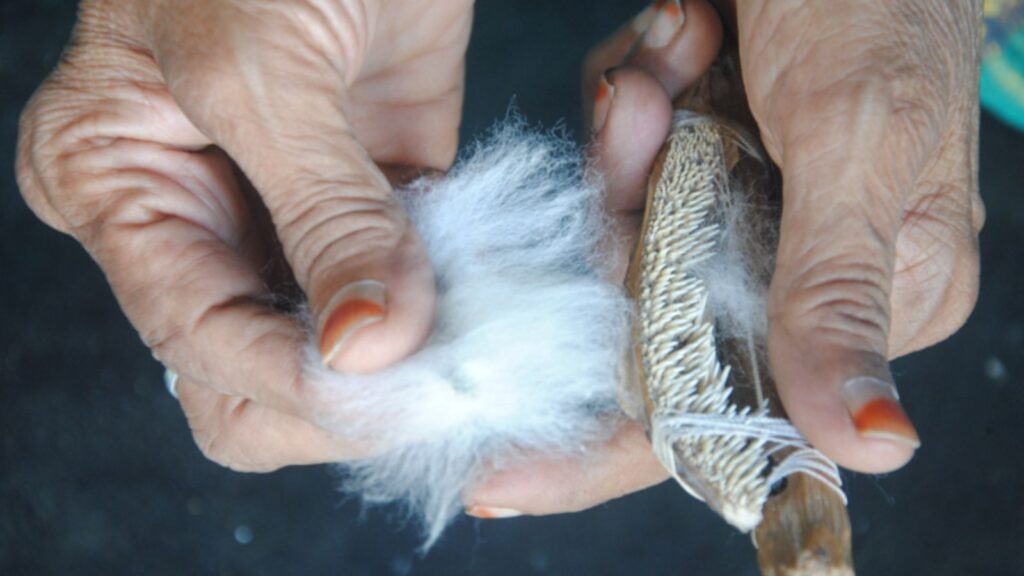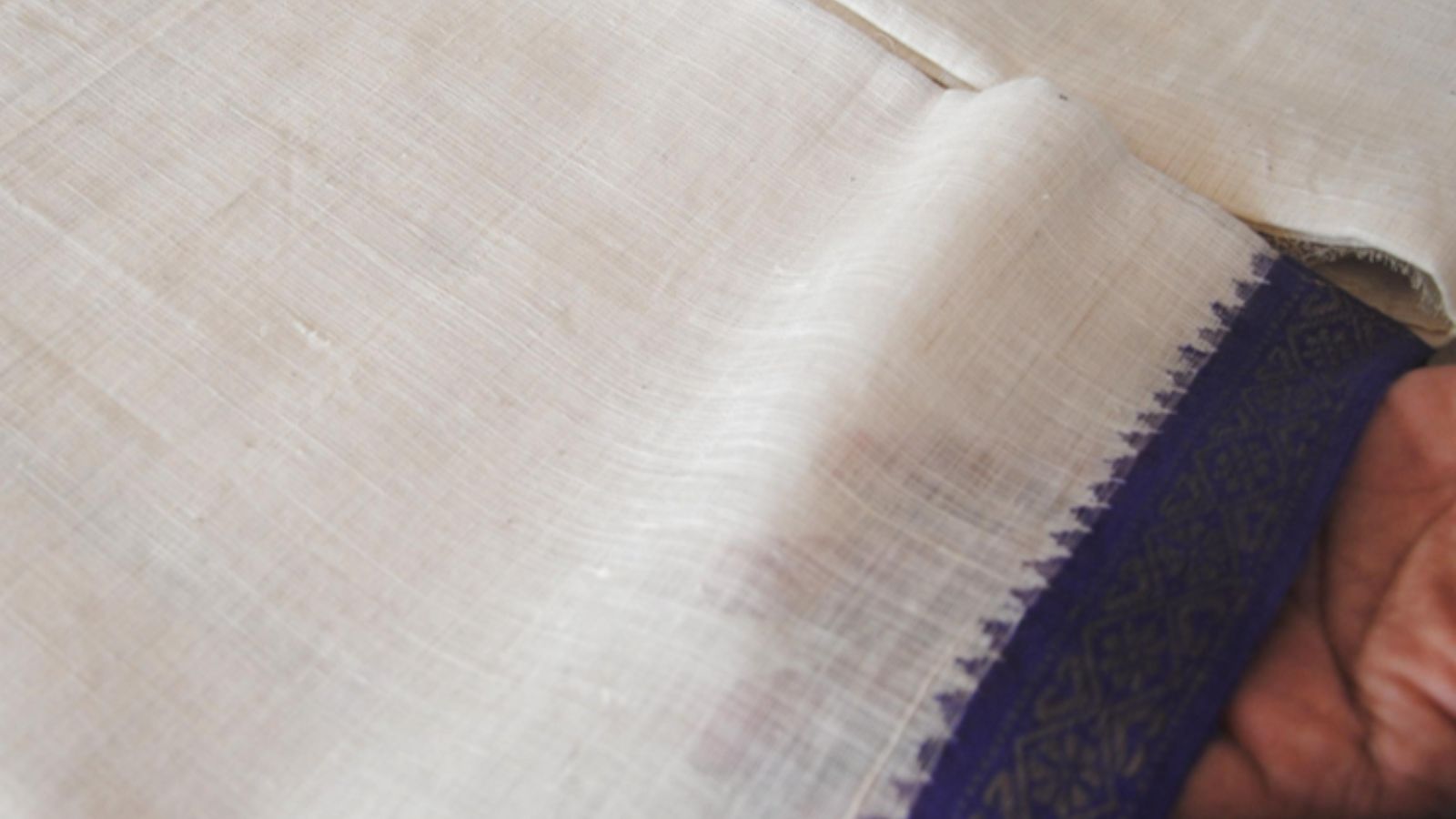Pondur, a small town in Andhra Pradesh’s Srikakulam district, is renowed for its centuries-old tradition of producing khadi of exceptional quality. This handspun, handwoven fabric has earned admiration from figures like Mahatma Gandhi, poet C. Narayana Reddy, and actor Akkineni Nageswara Rao.
What makes Pondur Khadi unique is its intricate and labor-intensive production process that begins with special local cotton varieties such as Punasa and red cotton. What’s more, the weavers use the jawbone of the valuga fish (a type of catfish) to clean and comb raw cotton, meticulously aligning the fibers and removing shorter strands. This fish jawbone, with its tiny needle-like teeth, is dried and attached to a stick to help remove seeds and polish the fibers, imparting a distinct sheen and smooth yet crisp texture to the fabric. This traditional method contributes significantly to the durability and strength of the khadi, setting it apart from other varieties.

After cleaning, the cotton is fluffed, carded, and spun using a single-spindle Gandhi charkha to preserve its softness and hand qualities. The yarn is then sized with natural rice starch and woven on traditional pit or frame looms. The entire process remains hand-driven, resulting in khadi that is breathable, eco-friendly, and retains its softness and drape even after repeated washing.
Pondur Khadi holds a Geographical Indication (GI) tag, recognizing its cultural heritage, unique craftsmanship. Mahatma Gandhi famously recognized Pondur Khadi’s superior quality, further elevating its status during India’s independence movement. The craft continues to thrive through the dedication of local weavers, preserving an iconic legacy in Indian handloom heritage.
Image Courtesy: D’source, https://www.sahapedia.org/



